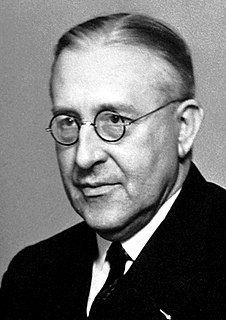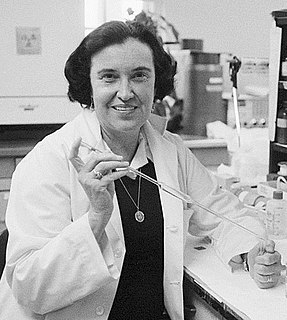A Quote by Victor Francis Hess
From a consideration of the immense volume of newly discovered facts in the field of physics, especially atomic physics, in recent years it might well appear to the layman that the main problems were already solved and that only more detailed work was necessary.
Related Quotes
When I was in college, I didn't like physics a lot, and I really wasn't very good at physics. And there were a lot of people around me who were really good at physics: I mean, scary good at physics. And they weren't much help to me, because I would say, 'How do you do this?' They'd say, 'Well, the answer's obvious.'
I am not a climatologist, but I don't think any of the other witnesses are either. I do work in the related field of atomic, molecular and optical physics. I have spent my professional life studying the interactions of visible and infrared radiation with gases - one of the main physical phenomena behind the greenhouse effect. I have published over 200 papers in peer reviewed scientific journals.
Philosophy used to be a field that had content, but then natural philosophy became physics, and physics has only continued to make inroads. Every time theres a leap in physics, it encroaches on these areas that philosophers have carefully sequestered away to themselves, and so then you have this natural resentment on the part of philosophers.
Philosophy used to be a field that had content, but then 'natural philosophy' became physics, and physics has only continued to make inroads. Every time there's a leap in physics, it encroaches on these areas that philosophers have carefully sequestered away to themselves, and so then you have this natural resentment on the part of philosophers.
I studied physics at Princeton when I was a college student, and my initial intention was to major in it but to also be a writer. What I discovered, because it was a very high-powered physics program with its own fusion reactor, was that to keep up with my fellow students in that program I would need to dedicate myself to math and physics all the time and let writing go. And I couldn't let writing go, so I let physics go and became a science fan and a storyteller.
There is no basis in text, tradition, or even in contemporary practice (if that were enough), for finding in the Constitution a right to demand judicial consideration of newly discovered evidence of innocence brought forward after conviction. My concern is that in making life easier for ourselves we not appear to make it harder for the lower federal courts, imposing upon them the burden of regularly analyzing newly-discovered-evidence-of-innocence claims in capital cases (in which event such federal claims, it can confidently be predicted, will become routine and even repetitive).
It is going to be necessary that everything that happens in a finite volume of space and time would have to be analyzable with a finite number of logical operations. The present theory of physics is not that way, apparently. It allows space to go down into infinitesimal distances, wavelengths to get infinitely great, terms to be summed in infinite order, and so forth; and therefore, if this proposition [that physics is computer-simulatable] is right, physical law is wrong.
We, however, want to become those we are--human beings who are new, unique, incomparable, who give themselves laws, who create themselves. To that end we must become the best learners and discoverers of everything that is lawful and necessary in the world: we must become physicists in order to be able to be creators in this sense--while hitherto all valuations and ideals have been based on ignorance of physics or were constructed so as to contradict it. Therefore: long live physics! And even more so that which compels us to turn to physics--our honesty!
We could tell them [alien civilization] things that we have discovered in the realm of mathematical physics, but there is stuff that I would like to know. There are some famous problems like how to bring gravitation and quantum physics together, the long-sought-after theory of quantum gravity. But it may be hard to understand the answer that comes back.































